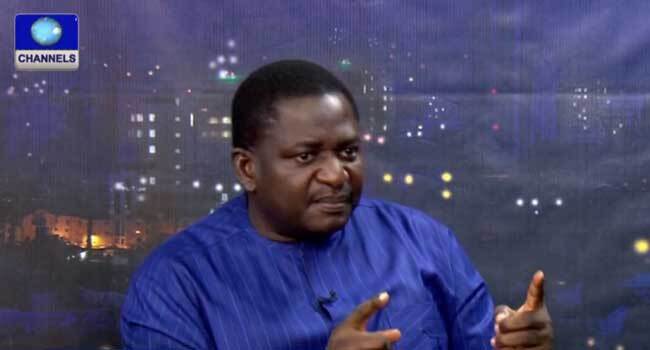To Say Buhari’s Govt Is A Complete Failure Is False, Says Adesina

Femi Adesina, the Special Adviser to President Muhammadu Buhari on Media and Publicity, has defended the current administration, saying it is not a complete failure.
Speaking during an interview on Channels Television’s Politics Today, Adesina said those who branded President Buhari as a failure are wrong, insisting that his principal, who swept to power on three cardinal promises –fixing insecurity, tackling corruption and fixing the economy – has fulfilled his core promises to Nigerians.
“Yes, there are certain areas where the delivery is high, higher than in some other areas. But for anybody to say it is a complete failure, that will not be true,” he said on Monday.
“In some areas, you may not have performed well as in others. There are three main promises and then it was expanded to those nine priority areas.”
The presidential spokesman while assessing the achievements of the Federal Government, said security has improved unlike what was obtainable in the past.
Adesina explained that the current administration met an insecure country in 2015.
While noting that insurgency was Nigeria’s main security challenge then, he regretted that other challenges like banditry, kidnapping, cultism among others later came on board.
He described the situation as worrisome, adding that the Federal Government is seriously working hard to nip the various security challenges in the bud.
“We met an insecure country; we went at it and there was some stability. After a while, it exploded again and became hydra-headed.
“Insurgency was the main problem then. Banditry, kidnapping, cultism [later] came in and all sorts of things. The issue is that security is a big elephant in the room,” he added.
Nigeria has been experiencing a series of security threats ranging from terrorism, banditry, militancy, cultism among others.
The country has been battling terrorism for more than a decade which has killed 36,000 people and displaced hundreds of thousands in the northeast.
The Islamic State of West African Province (ISWAP) split from the jihadist group Boko Haram in 2016 and has since become a dominant threat in Nigeria, attacking troops and bases while killing and kidnapping passengers at bogus checkpoints.
On March 1, jihadist fighters burnt down a United Nations humanitarian compound in the town of Dikwa after dislodging troops, killing six civilians.
Nigeria’s jihadist violence has spread to neighbouring Chad, Cameroon and Niger, prompting a regional military coalition to fight the insurgents.







